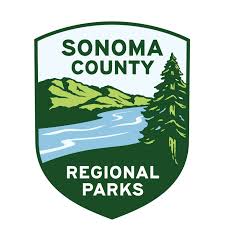The County has modified the training, hiring requirements and penal code status of park rangers and has established a parks law enforcement unit.
According to the information posted to their website, Regional Parks’ vision of the park ranger is one of community engagement, visibility and outreach. Rangers should be stewards of the environment and experts on the natural features and recreation opportunities in the parks. They should provide a welcoming, safe environment with their presence and be able to respond to medical emergencies when they arise in the parks. They should be able to enforce park rules and regulations and work jointly with local law enforcement against illegal activities in the parks.
The county is committed to developing a ranger program that provides a safe environment for our employees and our community. In July 2023, the county notified affected labor organizations of its proposal to realign park ranger training and hiring requirements with the position’s job duties. The county then prioritized every opportunity to meet and confer with unions over the next 12 months.
The Board of Supervisors in July 2024 voted to change the designation of park rangers from peace officers to public officers effective Aug. 15, 2024.
Key points
- Regional Parks is not eliminating the park ranger job classification.
- Regional Parks researched various options and determined the status of public officer (Penal Code 836.5) is an appropriate modification for the park ranger job series. It is a model followed by Marin County Parks and other municipal agencies in California.
- The change from peace officer to public officer better matches the ranger job training and Penal Code status with Regional Parks’ mission and philosophy for rangers.
- This change removes peace officer training and background requirements for ranger applicants, which will allow Regional Parks to accelerate ranger hiring.
- Rangers will continue to receive extensive training in the numerous services they provide, including emergency medical response, customer service, community outreach and the strategic use of administrative and parking citations.
- With this modification, rangers retain their authority to cite, arrest and detain when they witness misdemeanor criminal violations in parks and to issue administrative citations for violations of park rules and regulations.
- As part of this change, the Sonoma County Sheriff’s Office created a five-deputy unit that provides daily law enforcement in the regional parks and draws upon the full resources of the Sheriff’s Office and its mutual aid agreements.
Why did Regional Parks initiate this change?
Regional Parks has always articulated a low level of law enforcement responsibilities for rangers. However, the public, employees and other law enforcement agencies all expressed confusion over the tools, activities and equipment that park rangers possessed with their former peace officer status. The primary tools rangers use to enforce park rules and regulations are education, warnings and issuance of parking or other administrative citations. Park rangers did not carry guns, did not have the ability to arrest and transport suspects and were not part of the 911 emergency dispatch system. Transitioning to public officer status clarifies that rangers are not park police and that law enforcement is not their primary duty.
In addition, under the former peace officer designation, ranger applicants were required to undergo an extensive law enforcement background check and complete a law enforcement academy. However, entry-level park ranger training is no longer available locally after Santa Rosa Junior College in 2020 discontinued the National Park Service training academy it hosted.
When the training was available, many of the topics – firearms, arrests, felony stops, building searches, transport and booking, evidence and crime scene processing – were not duties a Sonoma County ranger performs.
What training will new park rangers receive?
Regional Parks completed extensive analysis and risk assessments with public safety and occupational safety consultants. In coordination with those recommendations and the County’s Risk Management Division, Regional Parks developed a customized training program consistent with the duties and services provided by a park ranger with public officer status.
The county’s new training program includes coursework at Santa Rosa Junior College’s Public Safety Training Center and training courses by departmental, county and external sources. Entry-level training includes more than 300 hours on topics such as emergency medical response, strategic communications, customer service, de-escalation tactics, water and wildfire safety, defensive driving, public safety coordination and other skills applicable to the county park ranger job series.
What if there is a serious crime or emergency in a park?
If there is a serious crime or emergency in a park, rangers will continue their current practice of requesting law enforcement services from the Sheriff’s Office, which will dispatch the appropriate and nearest law enforcement or emergency medical authority, local police, fire services or emergency medical services.
Additionally, the Sheriff’s Office has created a new level of law enforcement resources allocated to the parks. This Regional Parks unit patrols assigned parks daily and responds to crimes in progress, conducts field investigations, arrests and transport suspects and performs other law enforcement services that rangers are unable to provide.
Deputies coordinate daily priorities with rangers, focus their efforts at specific parks and visibly support employee and visitor safety. The Regional Parks unit is integrated into the county’s 911 emergency response network. To date, the unit has arrested a number of individuals suspected of consistently breaking laws within the parks.
Will we continue to see rangers in the parks?
Yes, and Regional Parks plans to hire additional rangers as soon as job specifications are negotiated and reviewed by the county’s Civil Service Commission. Rangers provide daily operational services in the parks. They engage with visitors, direct operations staff, collect fees, inform visitors about rules and regulations, enforce park rules, operate campgrounds, provide emergency medical care, inspect parks for cleanliness and hazards, help with unskilled and semi-skilled maintenance tasks and deliver interpretive programs.
By realigning the ranger training and background requirements with the ranger job duties, Regional Parks is making the position accessible to more candidates and will increase the presence and availability of park rangers.
Does this change affect the salaries and benefits of park rangers?
Salaries and benefits are not changing. Park Ranger I and II positions are represented by the Sonoma County Law Enforcement Association, and those positions do not participate in the safety members’ enhanced pension program. Park Ranger III positions are represented by Service Employees International Union and do not participate in a public safety pension program.
Have rangers’ emergency response options or protective equipment changed?
The county and labor organizations are negotiating a policy manual that will address potential changes to equipment, uniforms and other logistics. Rangers can continue to use Code 3 emergency lights to respond to medical or lifesaving calls as defined in Section 165 of the California Vehicle Code. However, as public officers, Regional Park rangers no longer carry a baton.






Be First to Comment